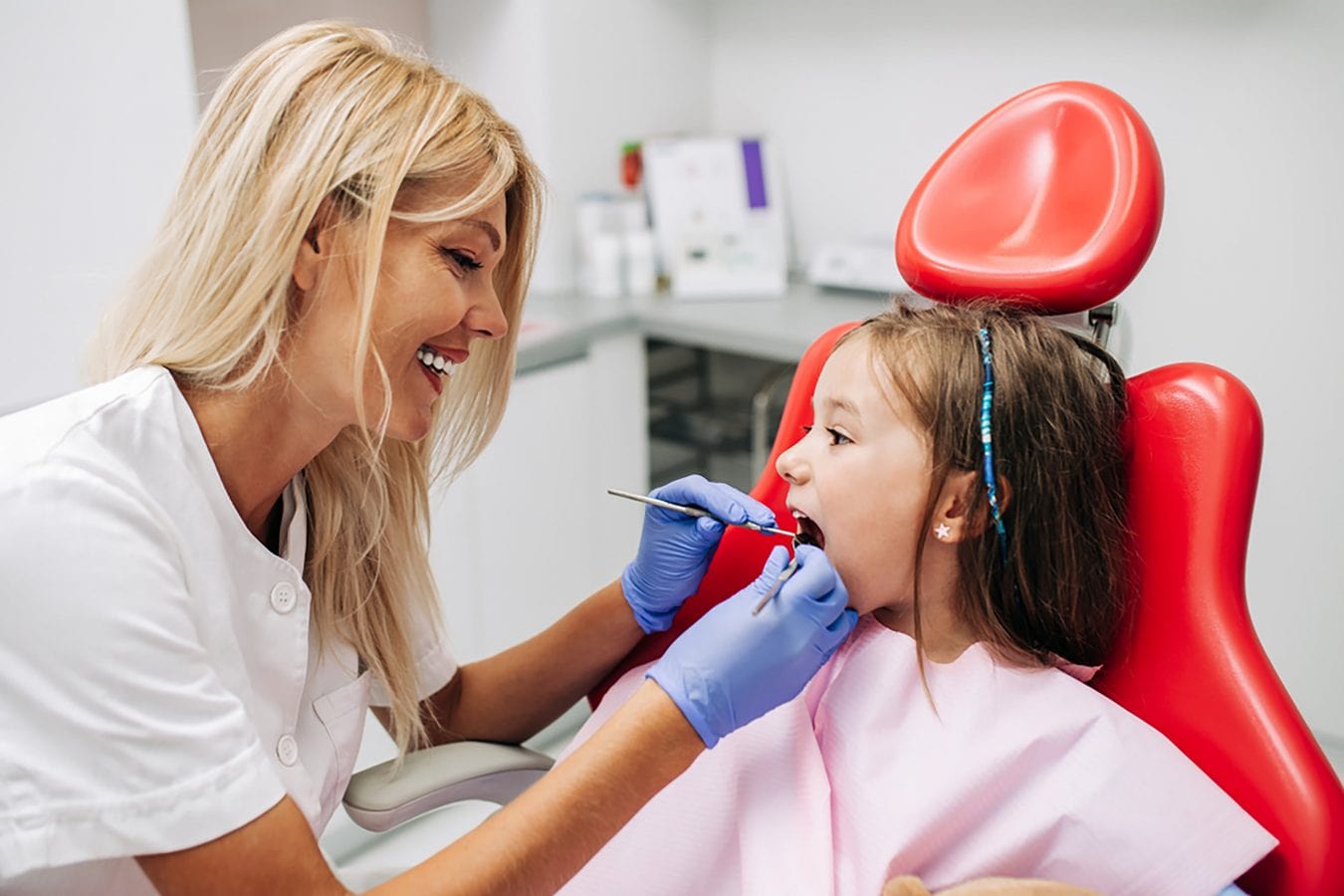Even though you won’t see them for many months, your child was born with 20 teeth under their gums. That means that dental and oral care is essential right from the start. Here are the five most common dental issues infants can face and how you can help.
Bottle-Related Tooth Decay
Babies who regularly drink milk formula or sweet drinks can develop tooth decay related to their bottle. You’ll see this referred to as early childhood caries, nursing bottle syndrome, or nursing caries. One of the most common causes of bottle-related tooth decay is when your baby falls asleep while drinking from the bottle. Bacteria feed on the sugary deposits that form in your child’s mouth and on their teeth. As bacteria multiply, caries develop.
There are two ways to prevent the development of nursing bottle syndrome. First, try not to let your baby fall asleep with milk or sweet liquids in their mouth. Second, get into a regular habit of cleaning your baby’s teeth as soon as they appear. Use the softest toothbrush and water or the smallest amount of toothpaste. When they see a children’s dentist near you for the first time, they will closely examine your child’s teeth and gums.
Thumb Sucking
Babies are soothed by and get a lot of comfort from sucking their thumb. Sucking their thumb after age five can alter the alignment of teeth and the shape of an infant’s jaw. Thumb sucking beyond five can cause dental problems and even make pronouncing words harder.
To break the thumb-sucking habit, use lots of positive reinforcement. If your child falls asleep with their thumb or puts it in their mouth while sleeping, pull it out. If you’re concerned about the impact of your child’s thumb sucking on their teeth and jaw, talk to a children’s dentist near you about it.
Sensitive Teeth
People of all ages can suffer from sensitive teeth. For infants, that sensitivity comes from the fact that the enamel layer on their teeth is thinner than yours and wears away more easily. As enamel wears away, cracks may form on your child’s teeth, and receding gums may expose nerves. That can mean pain while drinking or eating anything hot or cold. Make an appointment with a dentist if your child complains about tooth pain. Your children’s dentist will be able to address any cavities that have arisen and recommend steps to deal with tooth decay.
One way to reduce the risk of sensitive teeth is to protect your child’s enamel layer using only soft-bristled toothbrushes.
Damaged Teeth
An active kid is a healthy one! True as that is, games, sports, and adventure can sometimes lead to broken, loosening, or lost teeth. Don’t fall for the trap of assuming that broken, loose, or prematurely lost baby teeth are not a big deal. Those primary teeth are supposed to fall out, but only at the right time. Losing them prematurely can cause dental problems down the road. If your child has suffered a broken, loose, or injury-related lost tooth, reach out to a children’s dentist in Dearborn so they can take the steps necessary to preserve that tooth and your child’s long-term oral health.
If your child is an athlete participating in sports or activities with teeth-related risks, consider having them fitted for a custom mouthguard to protect their jaw and teeth.
Misaligned Teeth
There are a lot of causes for alignment issues that may not become completely obvious until your child’s permanent teeth start to come in — an overcrowded jaw, thumb sucking, baby teeth that were knocked out prematurely, overbites, etc. Alignment issues can be resolved; resolving them is easier the earlier the issues are identified. If you notice any issues with the spacing or alignment of your child’s teeth, get support from a dentist in Dearborn.
You can put your child on a path for a lifetime of good oral health by developing, demonstrating, and encouraging good oral care habits — including regular dental appointments — right from the start. Your child’s dentist in Dearborn is ready to help.

